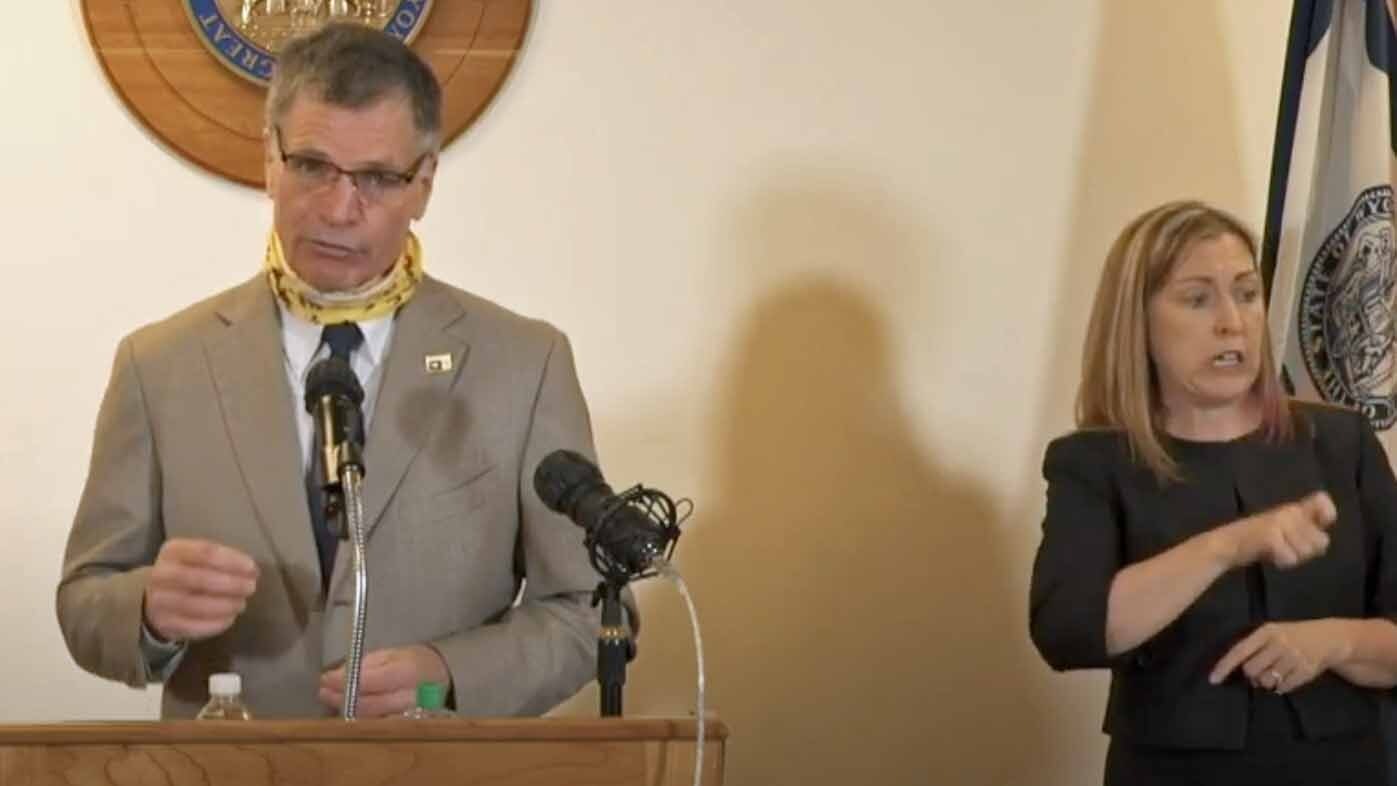Gov. Mark Gordon will veto a part of the business relief bill approved by the Legislature last weekend to let more businesses receive funds under the program, he announced Wednesday.
Gordon, during a news conference, said he would change the “Wyoming Business Interruption Stipend” program to allow businesses that lost less than $20,000 because of the coronavirus pandemic to apply for the program.
As written and approved, the program would allow businesses with 50 or fewer employees to obtain a grant of $20,000 to $50,000. However, Gordon said businesses that lost less than $20,000 should also be able to apply for assistance.
“We want to be sure that every small business owner will be eligible for assistance as this virus has affected businesses of all sizes,” he said.
Gordon praised the work of the Legislature during its two-day special session on May 15 and 16, especially given the conditions of the session. Most legislators attended through a video meeting app.
“I was very proud of our Legislature for dealing with very difficult issues in a very challenging environment … working under enormous amounts of scrutiny and stress.
“This is an unprecedented time and we have to make sure that we are working together, and we are,” he continued. “We are building Wyoming back.”
Legislation included three relief programs for businesses at a cost of $325 million, including one compensating businesses that were forced to close by statewide health orders and another to repay businesses for direct costs related to the illness, such as the purchase of special equipment.
The programs are to be administered by the Wyoming Business Council and Josh Dorrell, the WBC’s CEO, said the council is working now on the rules and guidelines for the program and hopes to begin accepting applications for the Business Interruption Stipend program by June.
“We must work as fast as possible to deliver on the vision of getting the money to these businesses with as little red tape as possible,” he said.
Gordon and Dr. Alexia Harrist, the state’s public health officer, also urged members of the public to continue to observe the health safeguards that have been recommended since the illness first reached Wyoming in March, including wearing face masks and staying at least 6 feet away from others.
“I just want to ask everyone to make smart decisions and follow the basic advice and recommendations we’ve been sharing all along,” Harrist said. “Let’s all do our part to keep Wyomng on the right path and stay focused on the goals of slowing and limiting the spread of disease in our state.”
Harrist also new coronavirus testing rules for nursing homes and assisted living centers, seen as a way to head off any outbreaks before they occur.
Under the new rules, officials at facilities with no coronavirus cases would be asked to test 20% of the facility’s employees staff and residents twice a week. At facilities with coronavirus cases, all staff and residents will be tested weekly.
On other issues, Gordon said he still did not know exactly what the state’s revenues would look like for the coming biennium, but he said the state must look forward to serious reductions in income.
“I can say it’s going to be profound,” he said. “It’s going to be a big deal.”
Legislative leaders plan to meet in a special session later this year to review the biennium budget they approved in March in the light of anticipated steep declines in mineral revenue.





